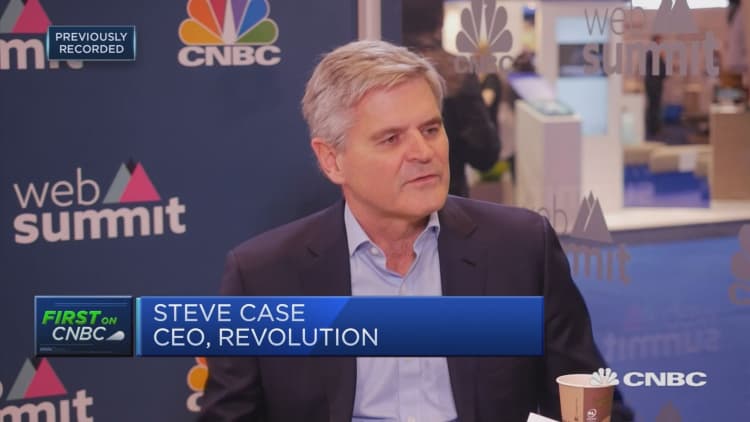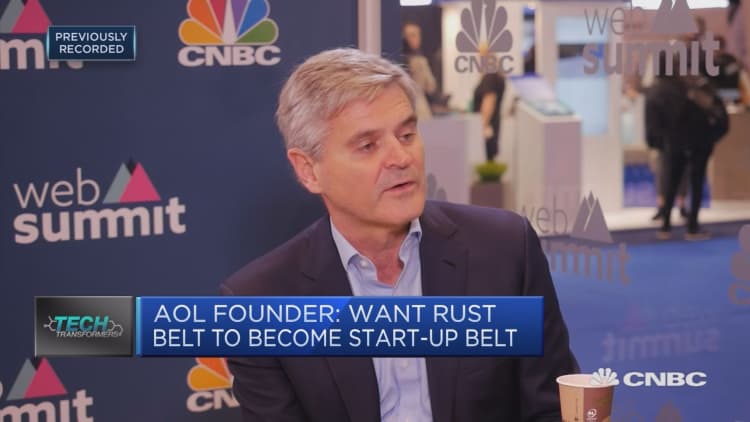
Investors need to back more entrepreneurs from outside Silicon Valley to create jobs in areas of the U.S. that have felt left out by the advance of technology, AOL co-founder Steve Case told CNBC on Wednesday.
Case, who is CEO of venture capital firm Revolution, said earlier this year that California, Massachusetts and New York captured 75 percent of venture capital last year.
This is a problem as many feel left out of the technology revolution, he added, so venture capitalists need to invest in companies in other parts of the U.S.
"We are seeing in this third wave of the internet entrepreneurship both regionalized and globalized... So Silicon Valley is great and will continue to be great, but I think we've probably hit peak Silicon Valley and we need to figure out ways to have a more diverse, inclusive innovation economy," Case told CNBC in a TV interview.

"So we can't just be backing the entrepreneurs in places like Silicon Valley, we also need to back them... in a lot of different cities in the United States as well as obviously many countries around the world."
Case explained that many people feel threatened by the rise of technology such as artificial intelligence (AI) and driverless trucks. He hoped that a new piece of legislation called the Investing in Opportunity Act, that aims to incentivize investors to back companies in "distressed" areas of America and which was introduced earlier this year, could help.
"A lot of people are anxious about AI and robotics and driverless trucks and so forth and some of these innovations are disrupting jobs in their communities," Case said.
"So we have to offset that, at least in part by backing a next generation of entrepreneurs in those cities, in those communities that can create job... and make sure everybody feels like they are part of the future."





